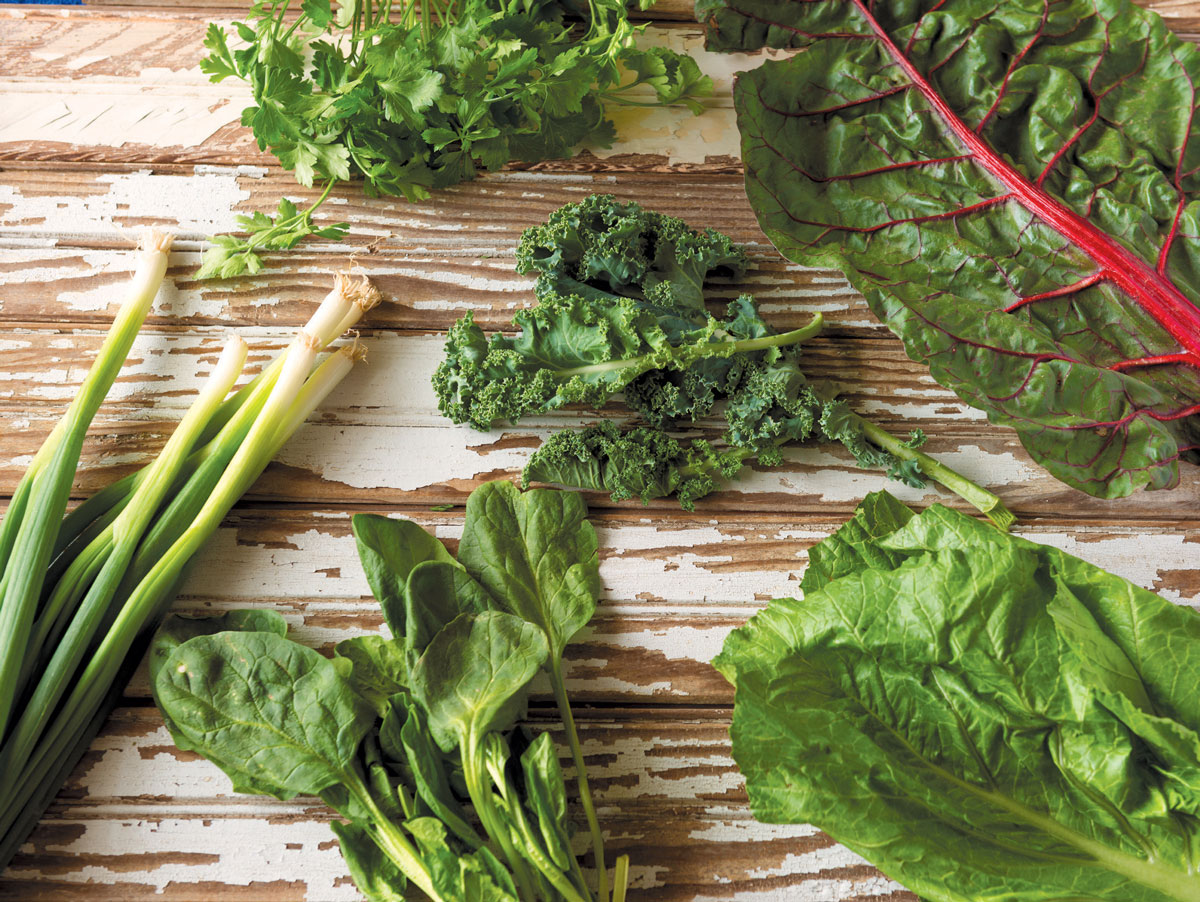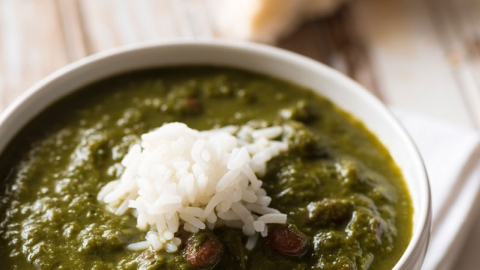Remembering Jim Core
When Jim Core laughed—a sharp trill filled with heart and confidence—it rang above the crowd at the Crescent City Farmers’ Market on Saturday mornings with the regularity and assurance of a church bell. At least that’s how it sounded to me.
That laugh meant baby turnips and broccoli. Tomatoes and heirloom kohlrabi. And it meant that I would get to feed my family and myself with vegetables grown by a man who, before he calculated whatever paltry sum I owed him, would squint up his eyes and address me like an old friend: Is your husband still working in Baton Rouge? When are you going to give that baby a sibling? How did that green gumbo come out?
Surely all of his customers, including the chefs for whom he grew specialty crops, have a when-I-first-met-Jim-Core story. For me it was in 2002 while I was reporting a story about organic growing practices. Jim invited me out to the 22-acre Taylor’s Happy Oaks Farm in Folsom, where he and his wife, Gladys, used branches and tree limbs collected from the environs to heat their greenhouses through the winter.
Jim was never a certified organic farmer, but he tended his crops with a gentle hand, let his chickens roam free, and often ditched his tractor for horse and plow. He and Gladys ate almost entirely from their own land, and they looked like it. Jim was rugged and sure-footed; Gladys sun-kissed with enviable biceps. Both had unusually twinkly eyes for people who worked so hard.
Brand loyalty extends to farmers’ markets, and over the ensuing years Jim’s table became my first stop. Whatever his selection—and in months of harsh weather, it could be slim—it dictated some amount of my week’s cooking plans.
Greens being one of his passions and specialties, he would fill my bags in the early spring with kale, collards, arugula, chard, mustards, turnip greens, green onions, parsley, and carrots with tops intact to feed my annual gumbo z’herbes habit. It takes me two hours to wash the greens for my double batches of green gumbo, and I used to love thinking about Jim and Gladys and their happy farm while picking leaf from stem and liberating the occasional grasshopper or ladybug out my kitchen window.
I missed Jim deeply during my green gumbo shopping last spring. He had died the previous August after suffering for months with gall bladder cancer. (Coincidentally, I learned of his passing while caring for my mother, a fellow kale-lover, who died two months later of the same rare disease.) It was a rough patch for local greens in general on the day I sought to set my pots simmering; after scouring two farmers’ markets, I resorted to the grocery store. No trill. No grasshoppers.
After Jim died, Gladys, who for years had worked their farm table at the Tuesday and Thursday Crescent City Farmers’ Markets, took a break from farming. Unsure how to move forward without Jim on the farm and in life, she focused on grieving and on the cleaning business she operates with her sister, Gay Redler. Last summer at her home in Folsom, Gladys generously sat down to talk with me about Jim and their life together. What follows is their story in her words.
I was born in New Orleans, and I grew up in Metairie. My sister knew Jim, and she introduced me to him. He worked at Hopper’s Drive-Inn on Veterans Boulevard. They would serve you food on a tray, like they do at Sonic. When I saw him I thought he was so good-looking. He looked like the Marlboro Man. I married him when I was 22, in 1970. My dad had properties, so we managed some apartments in Kenner. Then we opened our own appliance repair business. We serviced just about all the brands. He trained himself. He was really handy and could fix just about anything.
I hardly remember any vegetables in my house growing up. My mother was a single mother with five kids. She worked. She just cooked a lot of chicken or bought fast food. I went to boarding school at St. Gertrude’s. The nuns used to have squash, but they didn’t know how to cook it. I’d spit it in a napkin and wait until they weren’t looking so I could throw it in a trash can.
Jim was the cook in the house when we first got married. I made biscuits one time and they bounced off the wall. I think I cooked chicken for a week and a half, and he said, “If you cook any more chicken I’m going to go crazy.”
We used to come out to his grandparents’ farm on the weekends and get food and can it and bring it home. I didn’t even know what canning was, but I would help him. It was delicious. I was a good cook toward the end, but he taught me everything I know. We would be in the kitchen and he would get behind me and fix what I was doing. And I would say, “OK, Baby, you cook and I’ll clean.” I love to clean.
In 1985, he moved out here, to his grandparents’ farm. His dad [Harold Leroy Core] was living on the property and needed to have knee surgery, so they needed someone to come here and stay with him. But Jim had an ulterior motive. He knew in his mind he always wanted to move back here. But he never had that conversation with me. They say you always go back to your roots, and he did.
When I moved out here with him, I didn’t sleep for six months. It was so dark you couldn’t see anything. It was a completely different way of life. Pappy had an old wood stove, and that’s how we kept warm. Electric blanket. And the bathroom—he had to put a shower and a toilet in there for me. It made me grow as a person, I think. My parents couldn’t believe it. They didn’t think it was going to work. It was hard. But Jim loved farming, and I could see how happy he was.
After six months he asked me if I wanted to stay, and I really didn’t … but I did. I loved Jim and I said, “If this is what he wants to do, I’m going to work it through.” That’s what you do.
Jim and his daddy and I used to go sell to the wholesale place, and they wouldn’t give you anything. For a box of beautiful peppers, they would maybe give you five bucks. Pappy would say he’d rather go home and burn the stuff than give it away. You work so hard for all that. We had good friends who told us about the farmers’ market in New Orleans. Jim went and he was just blown away. He couldn’t believe that he could make a decent living. So we sold our appliance-servicing business.
After that is when he started buying greenhouses. He bought this wood stove. It’s like a big furnace, and you have two pipes that go into the greenhouses. I’d say, “Baby, if you want to produce more we’ve got to get the right equipment.” He was always scared to spend money, but you’ve got to spend money to make money. He paid cash for everything. Jim was not materialistic, and I admired that. Your handshake was as good as your word.
We learned over the years to plant what we could make money on. Like, we would get those yard-long green beans. Those are really easy, so we started planting a lot of those. And the edamame beans—those were very good. For a strawberry pint we'd get, like, four bucks. It was a learning experience. I just paid really close attention to everything he did.
As soon as daylight would come up, we both would get up, especially in the summertime. We’d go out in the field, get all the stuff and bring it to the barn; we’d wash it, pack it. And then we’d come home and take a little nap. We’d try to go back in the evening if we needed to tie tomatoes or seed.
In the wintertime, we’d put a lot of stuff in the greenhouses. We’d put cucumbers in there, bell peppers, arugula, lettuce. There were times I’m going, “I don’t want to do this. It’s hard work! What am I doing?” I’m not going to lie. Especially when it was cold. We’d get out in the field and we’d have to rowcover everything. My hands were so cold.
When I moved out here, I was not into kale—I don’t think I even knew what it was. But my favorite thing we grew was the different varieties of kale. And then we had beautiful lettuces in the greenhouses, and arugula. I love arugula. We ate a lot of salads. Jim used to make pizzas with the zucchini and squash. There’s nothing like your own fresh food. Nothing processed.
When we started going to the farmers’ market, chefs started to put orders in. We sold a lot to Donald Link. John Besh wanted us to plant squash blossoms. He would stuff those. Our customers would get upset because the restaurants would come and buy a lot of stuff and we wouldn’t have anything left. So we started telling the chefs to call us first so we could make sure to bring enough for our customers.
I’d always tell Jim, “Baby, you’ve got to grow what people want, not what you’re used to growing.” He called the standards “Ma-and-Pa stuff”: mustards, cabbage, broccoli. So we started growing different things. I was paying attention to what was selling at the market. I’d walk around and look. Jim was a country boy. He was kind of close-minded. I said I wanted to get into the heirloom tomatoes, and then John Besh approached Jim about heirloom tomatoes. It was awesome. Awesome.
When Jim got his foot cut off in 2000 [in a farm accident], my sister had to come help me. We work together cleaning too. We clean for different people and offices. I was doing it myself when the kids were little, through church. I don’t have any children, but Jim was married before. He has a daughter, Allison. She was 2 when we got married, and she lived with us for most of her life. So her kids, A. J. and Taylor, are my step-grandchildren. I love them, and they’ve always been with Jim and me.
Jim thought he was invincible. I thought he was invincible, too. Eight months he was sick. He tried to be as independent as he could. Two weeks before he died, he was down at the barn with A. J. and me tying kale. He wanted to be part of the farm. I let him do it as long as I thought he could handle it. He would have been 72.
He knew he was dying, but he said he didn’t regret anything. He was Baptist and I was Catholic, and when we got married he converted. He was devoted to it more than I ever was. Even when he was so sick, he went to church every Sunday. Every Sunday. Until the week before he died.
He taught me a lot about myself, about what I can do. He gave me so much confidence in myself. Quite a journey I’ve walked through with Jim Core. I sit back now and try to grow from that experience.
I’m happy to report that since my conversation with Gladys Core, her grandson, A. J. Healy, has resumed regular soil-tilling and kale-harvesting at Taylor’s Happy Oaks Farm. Lucky shoppers find grandson, and sometimes grandmother, at the Crescent City Farmers’ Market on Saturdays.






